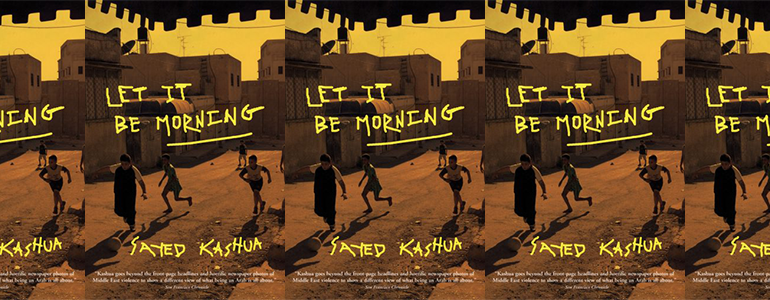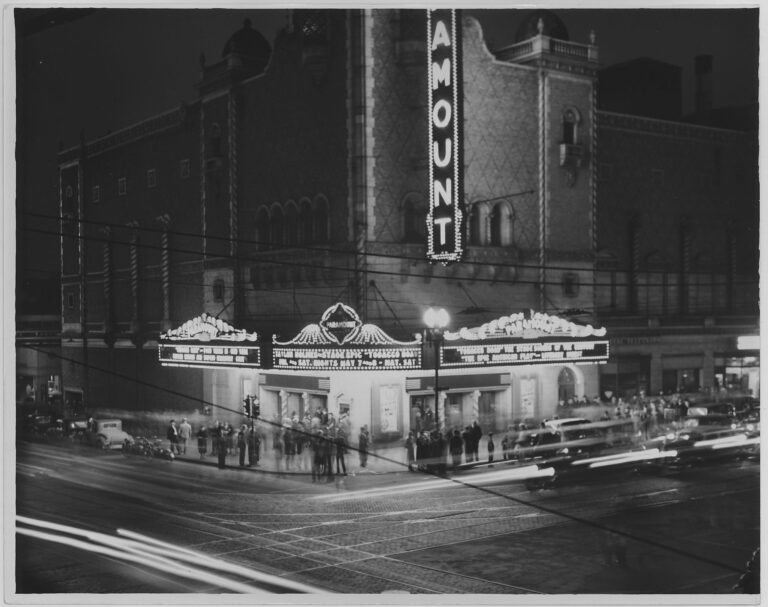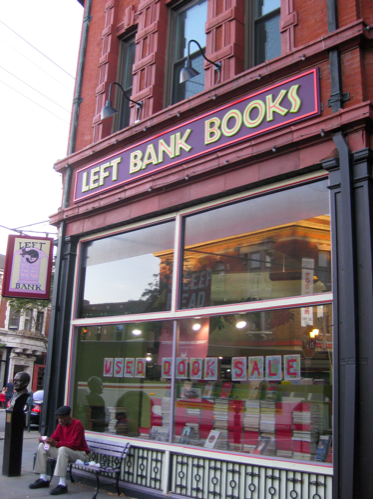Let It Be Morning’s Portrayal of Impending Catastrophe

I’ve been walking around lately with a feeling of quiet dread. I can feel it somewhere behind my navel. It is quiet enough to compartmentalize, gentle enough to push aside when people are around to make me laugh. It is ambiguous enough to keep productive response just out of reach, and yet its nature is clear to me: it is the dread of watching catastrophe unfold. From the baby formula shortage to multiple disease outbreaks, from the revocation of abortion rights to horrific gun violence, we are constantly reminded that freedom and safety is but a dream, some fanciful utopian notion. Even more disconcerting is the fact that seeing the signs of this reality does not make me feel empowered to change it. I vote, I donate, I protest and march. But these actions feel mostly pointless, their effects fleeting at best. I feel powerless to stop what is happening.
Sayed Kashua’s novel Let It Be Morning, which came out in Hebrew in 2004 and in English (translated by Miriam Shlesinger) in 2006, portrays the fast and furious unfolding of a disaster foretold. One morning, the residents of a village in Israel’s Triangle region (a cluster of towns and villages inhabited by Arab citizens of Israel) wake up to discover their village under siege. Israeli military tanks block their access to roads connecting them to the rest of the country and anyone who attempts to cross over is shot on the spot. The novel’s protagonist, a journalist struggling to keep his job at an Israeli newspaper, who has recently moved with his wife back to the village after a stint in a Jewish city, senses what his relatives and neighbors either fail to see or refuse to see: calamity approaching. Over the next few days, the village is cut off from water, electricity, and cell service. Food supplies run out, the local bank is burnt to the ground, and gangs tyrannize residents. But even as the protagonist prepares by hoarding food and instructing his family to conserve water, he cannot do much to defend himself or his loved ones when his water supply is stolen in the night or when a mob attacks him and pillages his house for food reserves.
As they wait, biding their time and hoping for a miracle, the protagonist’s father insists that the Israeli government would not abandon its citizens and that this is a temporary inconvenience that will resolve when illegal Palestinian laborers hiding out in the village are handed over to the authorities. The protagonist’s younger brother, a university student, alternates between longing for his carefree life in an Israeli college dorm and yearning for life in a Muslim country. The protagonist himself, wounded by the disdain and rebuke of his Israeli colleagues, knows that even if the siege lifts, nothing can ever be easily resolved. He has seen reality outside of the village, and understands just how precarious life is for people of their particular identity.
Let It Be Morning examines the status of the Arab citizens of Israel. Legal residents with freedom of movement, unlike the Palestinians who live outside of Israeli borders, Arab citizens can work, own property, and vote, and yet they are seen by the government and many Jewish citizens as second-class citizens at the best of times, and an enemy within at the worst of times. Kashua—an Israeli Arab who spent years writing for Haaretz, much like his protagonist—often grapples with this complicated position in his writing, using humor and metaphor to pull Jewish readers out of their comfort zone and face them with the realities of his existence: the bigotry and hatred he faced from Jewish neighbors, the workplace discrimination, the alienation that recurred with every war. For years, he toed the line between token minority and harsh critic, using his captivating and sharp humor to charm his way into the minds of his readers in an attempt to make them really listen. It puts me in mind of the way comedian Daniel Sloss, in his 2019 special, Daniel Sloss: X, compared the structure of his stand-up specials to a frog placed in a slowly boiling pot of water. By the time the frog realizes what it had got itself into, it’s too late. Kashua lulls his readers into a feeling of safety and ease before delivering hard truth. But the hardest truth of all came when he and his family finally decided to leave Israel. His Haaretz column announcing their move featured a painful conversation he had with his teenaged daughter, to whom he was trying to explain the choice to uproot their lives: “To them,” he told her, referring to the Jewish majority of Israel, “we’ll always be just Arabs.” No matter how revered and appreciated by his audience, Kashua and his fellow Israeli Arabs are never treated as equals.
It is this unsteady and ambiguous status that holds the characters of Let It Be Morning in their place, keeping them confused and complacent as their life and liberty is swiftly and silently upended. Their distrust in the systems of power is no match for their deep-rooted wishful belief that, when push comes to shove, the country will fight for them, the government will protect them, the military will recognize them as the law-abiding citizens they are. Having read the signs for years before the siege, the protagonist knows it isn’t so. But reading the signs is no big help. When injustice drips in bit by bit, it is easy to adapt, though with every such adaptation, reality shifts until finally it is irrevocably transformed. Much like the frog in the slowly boiling pot, the villagers convince themselves time and again that things will work out, that “normalcy” will be restored. By the time they realize their error, everything they had is gone.


